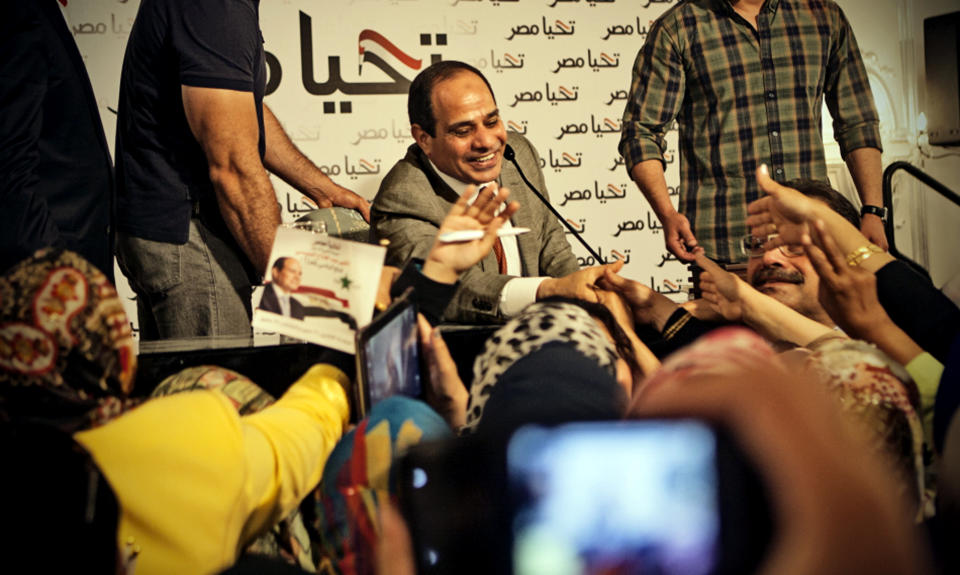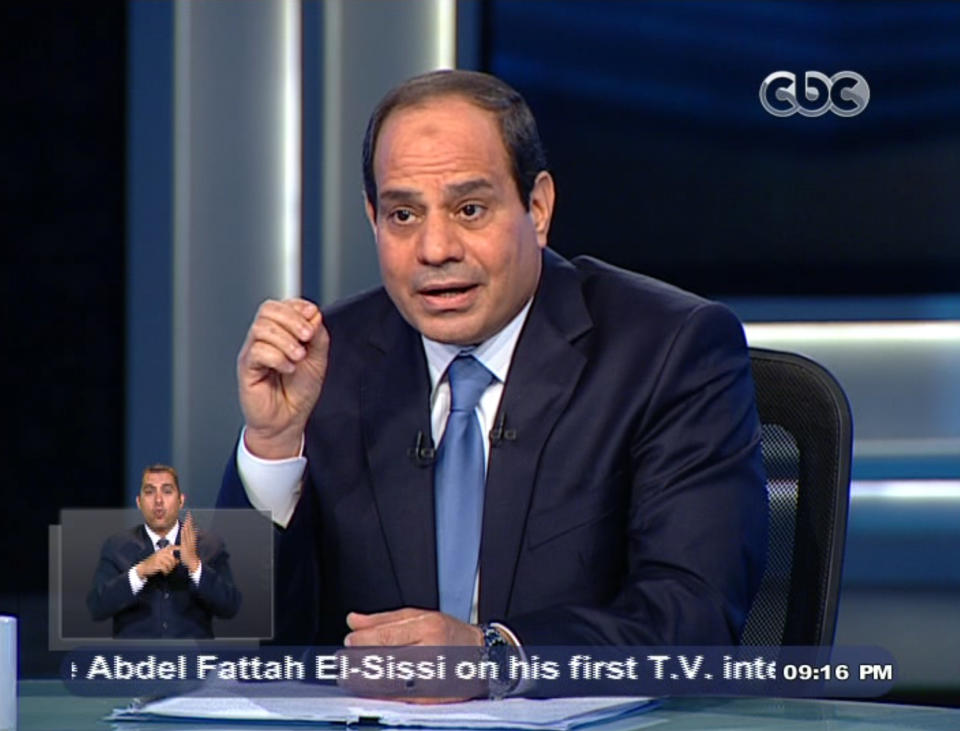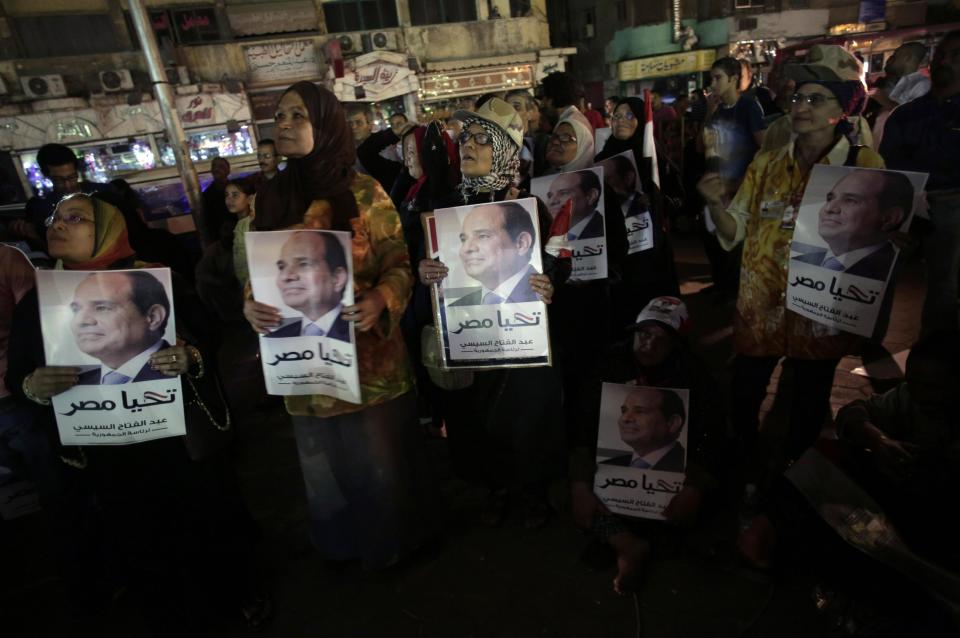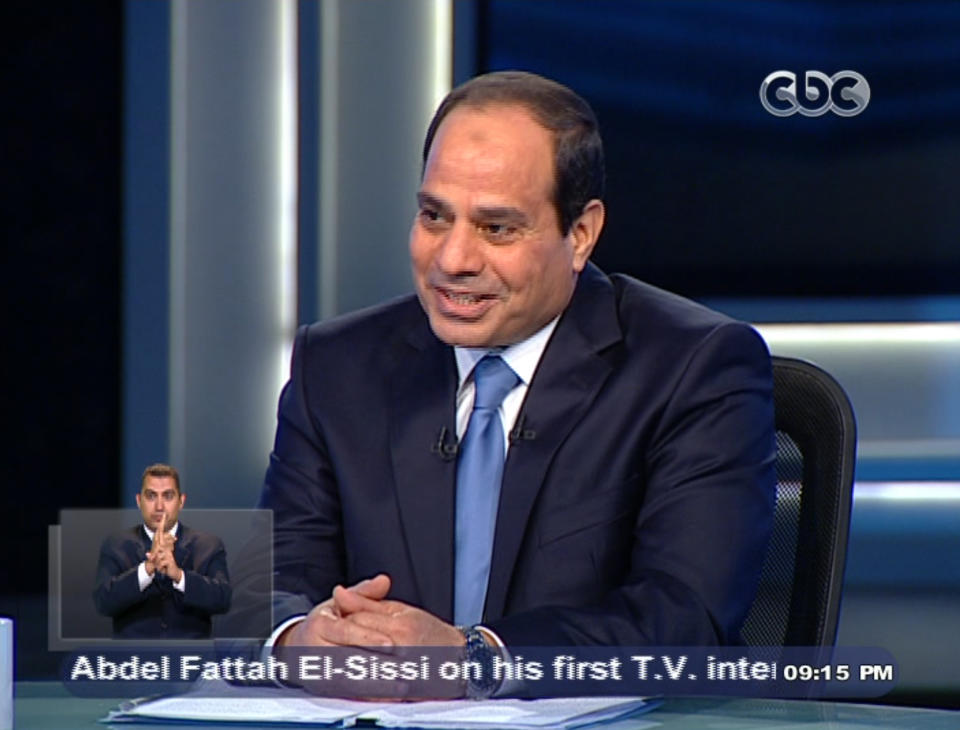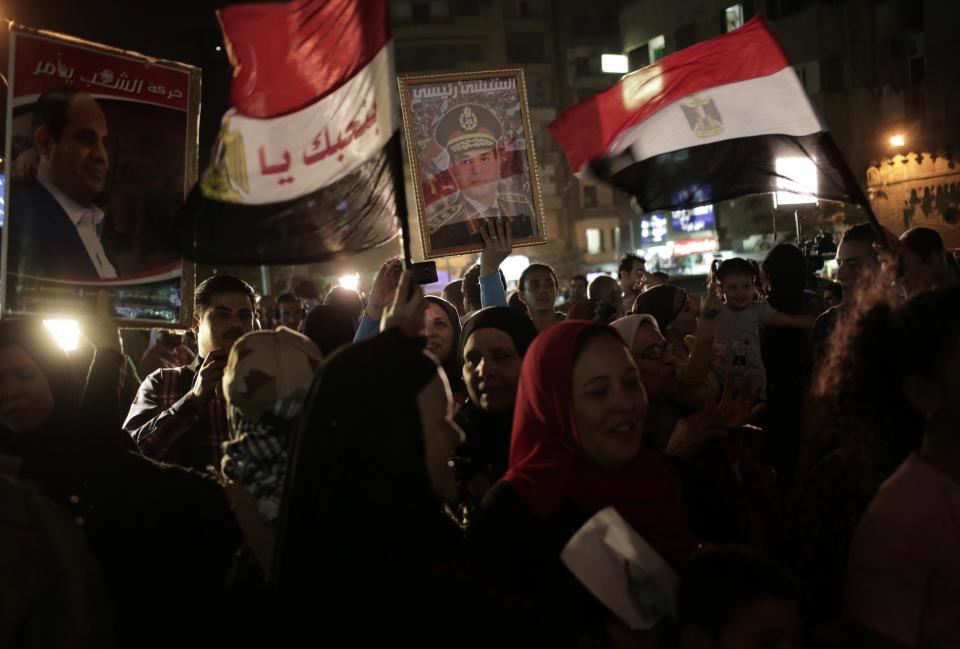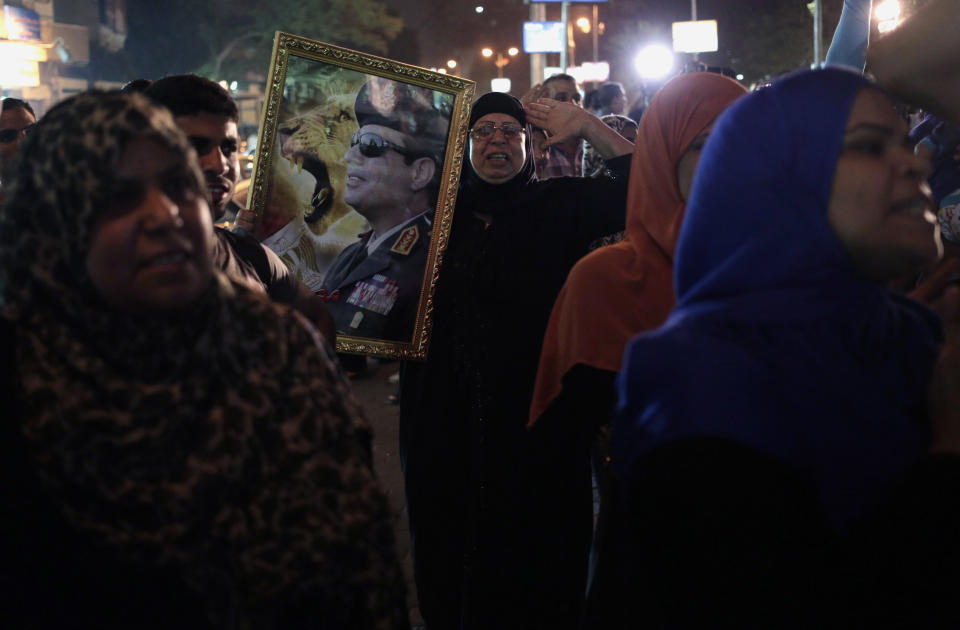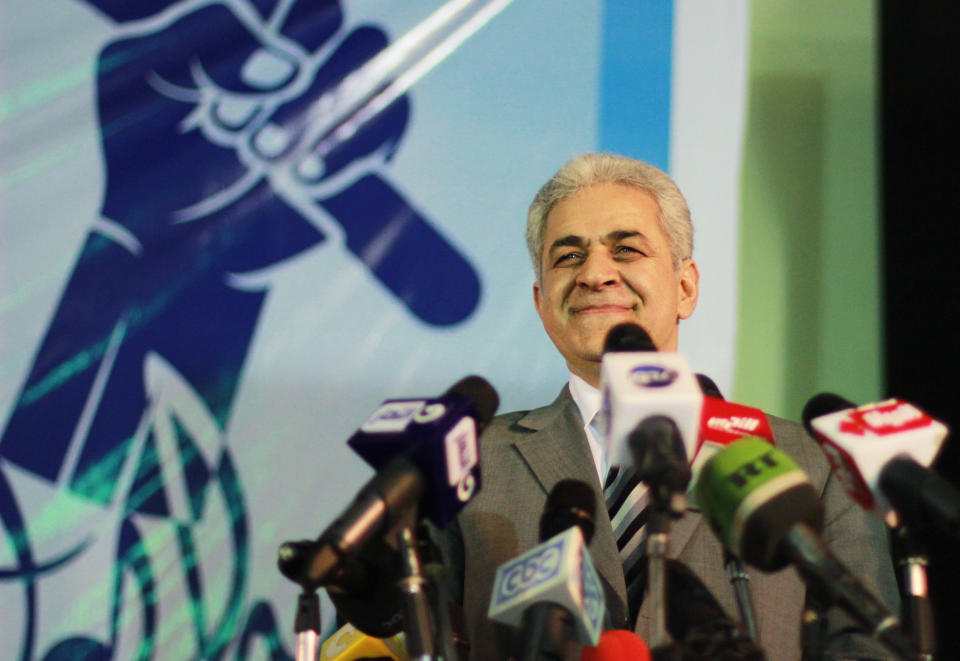Egypt bans Mubarak party leaders from elections
CAIRO (AP) — An Egyptian court on Tuesday banned leaders of the former ruling party of ousted President Hosni Mubarak from running in any elections, a vague ruling that could bar former officials of that regime from returning to politics for the time being.
The ban comes as Egypt prepares for presidential elections later this month. Former military chief Abdel-Fattah el-Sissi, who removed Mubarak's successor, the Islamist Mohammed Morsi — is poised to win the vote. Parliamentary elections — when the ruling would have a strong impact, if it stands — are expected in the summer, though no date has been set.
It is widely believed that former Mubarak-era officials could make a strong showing in the parliament elections, given the absence of strong liberal-leaning parties and of Morsi's Muslim Brotherhood and its Islamist allies, who dominated the 2012 elections but have been crushed by a heavy security crackdown since Morsi's ouster.
The Cairo Court for Urgent Matters ruled that leaders of Mubarak's National Democratic Party cannot run in any presidential, parliamentary or local city council elections. The ruling is binding until a higher tribunal issues a final verdict on the matter. It is highly likely that a higher court will overturn it because it violates a principle of equal political rights granted by the constitution.
The ruling did not define what constituted being a party leader, making it hard for the coming election committee to implement it. A previous court case attempting to ban NDP members from politics for a period was shot down by the constitutional court.
While the NDP was disbanded and its offices shut down in 2011, months after an uprising toppled the autocratic Mubarak, its members could still run in elections. Some formed new parties, struck alliances with existing parties or ran as independents in the last parliamentary elections, in 2011.
The court on Tuesday based its ruling on the previous disbandment of the NDP. "It is not rational that toppling a regime works without (toppling) its arm, which is the party," the judge said in his rulings.
The court ruling comes a day after el-Sissi gave the first TV interview of his campaign, saying that under his rule the Brotherhood will make no comeback. Morsi and many Brotherhood leaders and supporters are jailed and facing a catalog of charges. Hundreds have been killed and thousands arrested in police crackdowns on pro-Morsi protests.
Two private TV stations, ONTV and CBC, are airing a second part of the interview Tuesday evening, in which el-Sissi is expected to detail parts of his election platform.
El-Sissi's comments Monday night gave a stark signal of his intention to eliminate the 86-year-old Brotherhood as both a political and ideological force in the country.
Asked whether the Brotherhood will no longer exist under his presidency, el-Sissi replied, "Yes. Just like that."
"It's not me that finished it, the Egyptians have. The problem is not with me," he said.
The Brotherhood and its Islamist allies won every election following Mubarak's ouster, dominating the parliament and capturing the presidency under Morsi. The Brotherhood's electoral strength was largely rooted in a widespread grassroots organization it had built up for decades despite being banned under Mubarak.
But after a year in office, millions joined protests demanding Morsi's removal, accusing his Brotherhood of monopolizing power and seeking to change the country's identity along the lines of Brotherhood ideology. El-Sissi overthrew Morsi on the fourth day of those protests.
Over the last months, Interim government has branded Morsi's group as a terrorist organization, banned it and ordered confiscation of its assets along with leaders' assets. The group denies any links to violence. Another al-Qaida-inspired group has claimed responsibility for a wave of suicide bombings and attacks that targeted mainly police and military and said to be in response to killings of Muslims.
